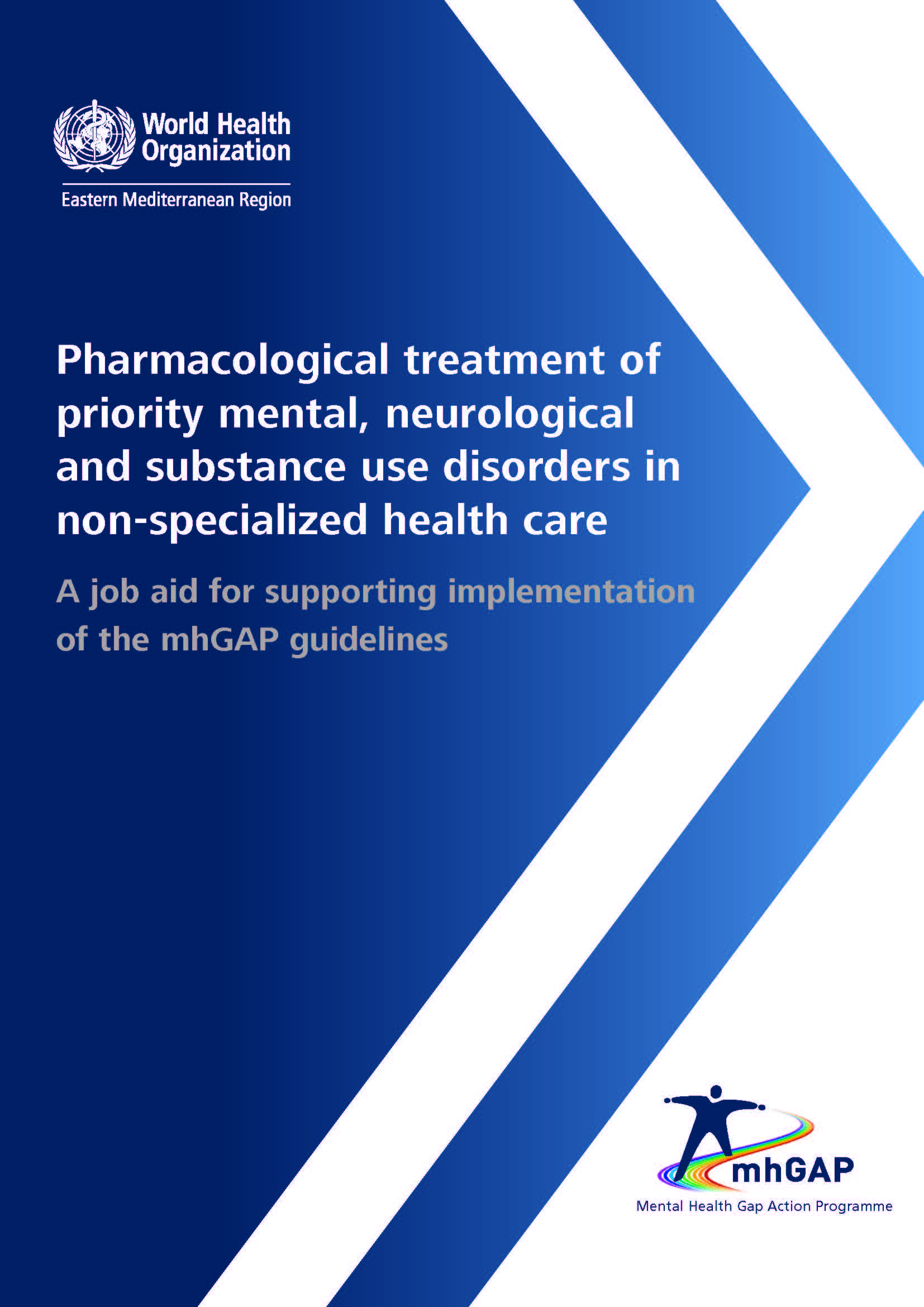Pharmacological treatment of priority mental, neurological and substance use disorders in non-specialized health care: a job aid for supporting implementation of the mhGAP guidelines
 Mental, neurological and substance use (MNS) disorders are common in all regions of the world, affecting every community and age group across all countries, regardless of income. Some 10% of the global burden of disease is attributed to these disorders, but the World Health Organization (WHO) estimates that only 29% of people with psychosis and 40% of people with depression receive mental health services. The gaps in treatment vary across countries and from one mental health condition to another. For example, while 70% of people with psychosis are reported to be treated in high-income countries, only 12% receive mental health care in low-income countries. For depression, the gaps in service coverage are wide across all countries: even in high-income countries, nearly half of people with moderate to severe depression do not receive formal mental health care.
Mental, neurological and substance use (MNS) disorders are common in all regions of the world, affecting every community and age group across all countries, regardless of income. Some 10% of the global burden of disease is attributed to these disorders, but the World Health Organization (WHO) estimates that only 29% of people with psychosis and 40% of people with depression receive mental health services. The gaps in treatment vary across countries and from one mental health condition to another. For example, while 70% of people with psychosis are reported to be treated in high-income countries, only 12% receive mental health care in low-income countries. For depression, the gaps in service coverage are wide across all countries: even in high-income countries, nearly half of people with moderate to severe depression do not receive formal mental health care.


